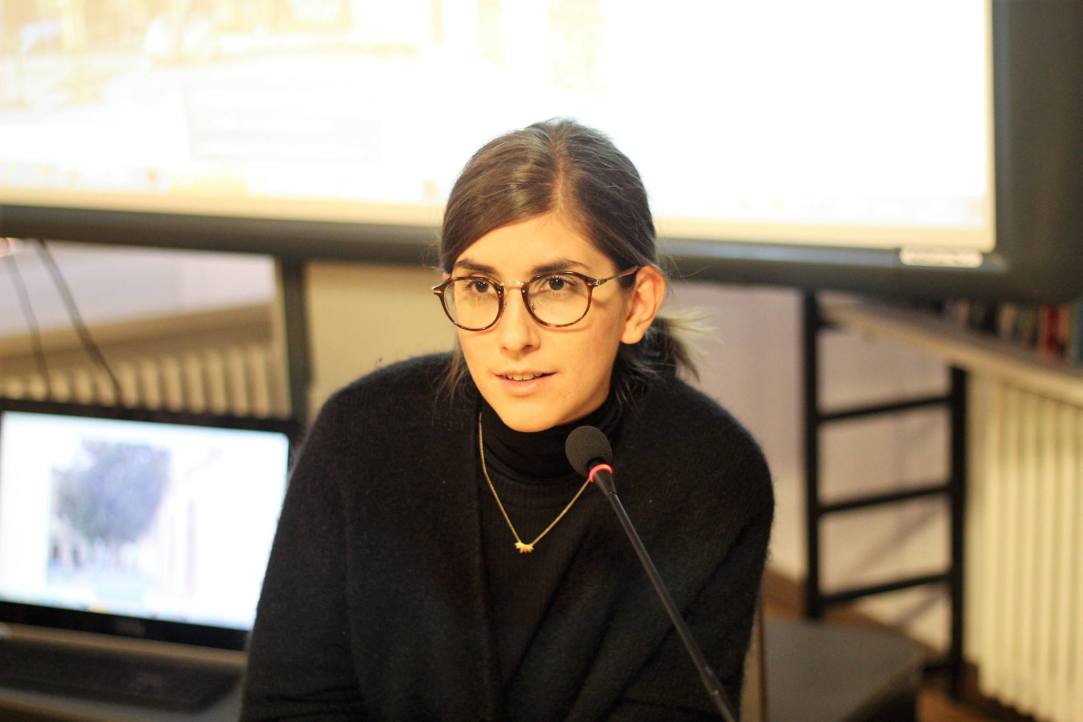‘The Most Precious Aspect of This Year in Moscow is the Opportunity to Speak with People’

Vera Pozzi, originally from Italy, received her PhD in Philosophy from Università degli Studi di Milano in 2015. She recently started as a post-doc research fellow in the School of Philosophy (Faculty of Humanities), where she is studying contemporary Russian Orthodox thought. Vera spoke with the HSE News Service about her experience at HSE Moscow so far, her research interests, and what she is hoping to accomplish over the coming year.
— You came to HSE Moscow quite recently. How would you assess your time so far? What have been some of your lessons learned?
— You’re right, I’ve been in Moscow not so long, and the time seems to flow faster and faster! I think this is the main interesting lesson: a couple of weeks after my arrival, my to-do list started increasing every day, and I realized that one year can be very short if there are many challenges!
— How has real life in Moscow turned out to be different from your expectations?
— When I arrived in Moscow, it was like a ‘coming back’ for me. I lived here several times between 2009 and 2013, and I expected to find the same city I was used to.
But I realized that in the last four years, Moscow has changed a great deal. Apart from the deeper and multifaceted changes, two basic features that immediately affect international newcomers’ life are that the city has become much more English-speaking (on public transportation, in museums, etc.) and that people now have the opportunity to pay everywhere with a bank card. As far as I can remember, four years ago both these phenomena were very rare.
— How is your work on the Russian Orthodox Church going? What are you focused on?
— I am currently focusing on contemporary Russian Orthodox thought, and one of the main challenges is to deal with its articulation, i.e., it being an ‘archipelago’.
As usual, when you go deeper into an issue, problems and ideas start growing like branches on a tree. This is when it becomes important to follow the main one while never forgetting about the ones that you cannot address at the moment. That’s why I decided to increase the number of sources I’m using while preparing to write on a single branch. This gives me the opportunity to work methodically, without losing the most precious aspect of this year in Moscow – the opportunity to speak with people and to do interviews.
— How have you found communication, both with colleagues and in everyday life? Do you have any life hacks to overcome any particular difficulties?
— I have had several interesting occasions to meet new colleagues, both from the School of Philosophy and from others, thanks to activities organized by the International Faculty Support. I met members of the staff as well, and these all have been warm and welcoming meetings!
As for the difficulties, perhaps the most difficult thing is also the most challenging. During this year, I have the precious opportunity to talk with Russian scholars about Russian history and culture, which means that every person I meet has her or his point of view to share. On the one hand, I see my role as taking a step back and listening attentively to every perspective, but on the other, I try to maintain the ‘wholeness’ of the frame.
— What are some of your favourite places in the city for leisure and fun?
— When I need to rest and take a breath, I take a long walk around Izmailovsky Park – it’s a wood rather than a park, and there you can see the slow passing of the seasons and remember that buildings are not everything.
And about the city itself, I really like Mysanitskaya Street and its surroundings, with old shops, nice cafes and interesting corners. Moreover, I love visiting the cosy, eclectic bookshop on Pokrvoka Street: there I usually drink a cup of tea, browsing and looking for unusual contemporary Russian books, or new editions of the classics. And I can’t wait for spring to go and visit Moscow State University’s Botanic Garden (Apothecary Garden) on Prospekt Mira.
— Are there any books, films, or research papers that you can recommend for international newcomers to HSE Moscow?
— I would actually suggest a website rather than specific titles. It’s called Arzamas Academy, a very interesting and always up-to-date project where one can find papers, poems, videos of lessons and courses on a large number of topics – from contemporary dance, to Russian history and language, from children’s literature to art history.
As a book, I’d recommend Olga Sedakova’s ‘In Praise of Poetry’ (Open Letter Books 2014) – an unexpected journey into her poetry and prose.
— What are your future plans?
— I would like to go deeper into the issue of contemporary Russian Orthodox thought, widening my sources and, hopefully, meeting inspiring people.
Anna Chernyakhovskaya, specially for HSE News service
Vera Pozzi
See also:
HSE Offers Traineeship Opportunities for International Doctoral Students
Doctoral schools provide an opportunity for international doctoral students to undertake part of their study or research at HSE. The university offers two types of traineeships – research and study. The study stay involves taking courses from the HSE doctoral schools. The research stay offers the opportunity to work with a particular academic advisor or at an international research laboratory or centre; gain access to international full-text and abstract databases, journals and books; and attend graduate seminars.


